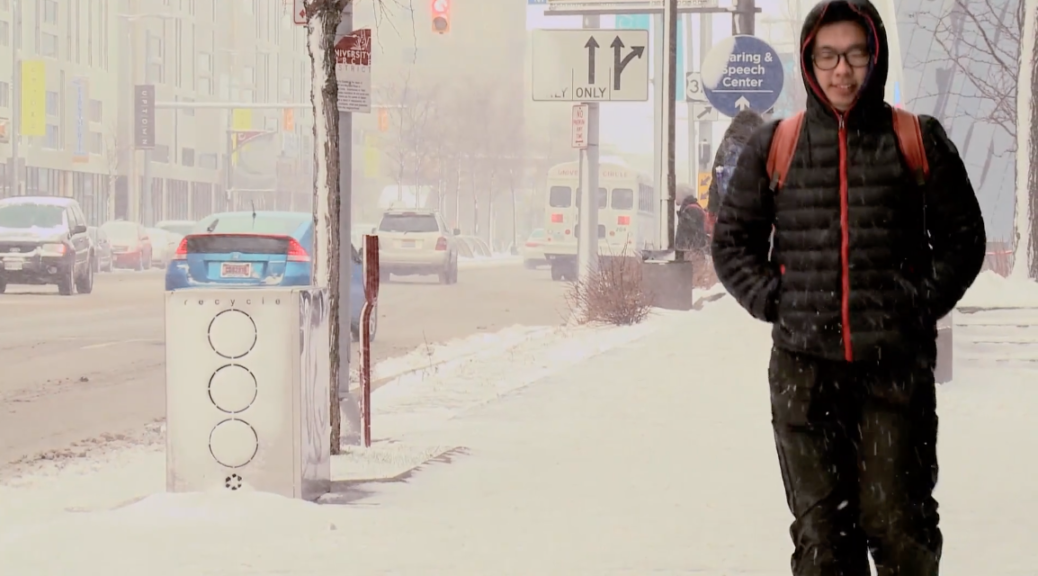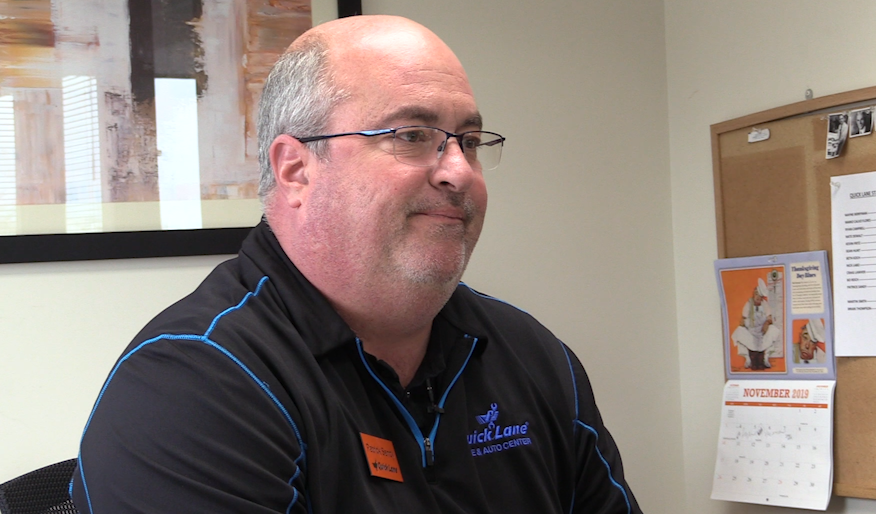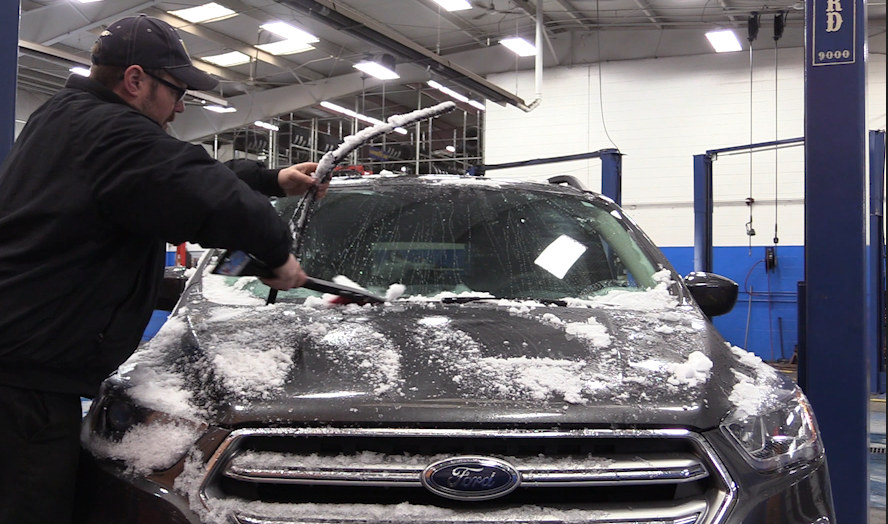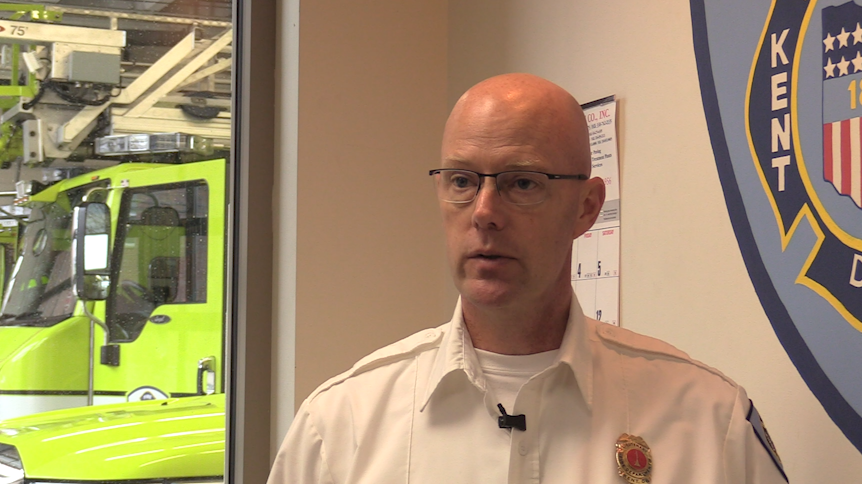
Winter Safety Series: protecting your lifestyle in the cold season
In Northeast Ohio, the winter season is in full swing. With multiple snowfalls already hitting the region, the fall weather is behind us.
For many, the transition of seasons can be difficult, but, when the temperatures drop and precipitation changes, lifestyles can often be affected. The frigid weather changes the daily routine, including how you get around, how you take care of your home and how you take care of your health.
Do you think you have a safe lifestyle in the winter season?
Driving is a major safety concern in the cold. There are many features that need close attention in the winter months. Tire pressure can change, fluid can freeze and your battery has a better chance at dying faster.

“Make sure your tires are properly inflated and have the tires inspected to make sure there’s enough tread to safely navigate the icy roads,” said Pat Sandy, Quick Tire Auto Shop Store Manager.
When you’re on the roads, make sure you allow extra time to stop and clear off your car from any snow.

“All your windows should be clear, just as if you were driving in a day in July,” said Ron Zoller, Ohio Department of Transportation Manager. “Make sure your windows are clear your marriage your scraped, your headlights and taillights are clean, so people can see.”
If you get caught in a whiteout, do not panic. Slow the car down but do not try to completely stop. Putting your hazards on and continuing to drive is essential to ensuring a safe outcome.
Always remember to have a phone and charger with you when driving.
“Make sure your phone is charged so in case you do need to call 911 or anybody else to come help you that it works,” said Zoller.

It’s also a good idea to keep jumper cables, washer fluid, an ice scraper and a blanket in your car at all times. “It’s not a bad idea to throw that stuff in the trunk to have in case your car breaks down,” said Sandy, “So you’ll be okay until the tow truck or someone comes to help you.”
While you should pay close attention to your car this season, your home is just as important. The winter months are the most popular when related to house fires.
Most winter-related house fires are from cooking, furnace, chimney and electrical issues. “Make sure you don’t have a lot of extension cords if you have one,” said Roger Gerhardt, home inspector. “That may be fine for space heater but make sure you only have one thing on it because you overload it [extension cord].

“Adding a bunch of Christmas lighting to a circuit in addition to the things that you normally use on that circuit on an everyday basis- so adding infused power plugs to an outlet to plug multiple devices in at one time is something that you shouldn’t do,” said Lt. Jeff Coffee, Kent City Fire.
Ways to winter-proof your home can include replacing your furnace filter, cleaning out your chimney, and being cautious of candles burning.
“You should have a working smoke detector in your home,” said Lt. Coffee. He said if you can afford it, you should have one in every sleeping unit of the home to be cautious. He also emphasized the importance of having a carbon monoxide detector in the home.


Space heaters can be safe if they have a timer set to shut off when the temperature is reached. They should also be 3 feet away from any clothes, walls or drapes.
Finally, cold temperatures can drastically affect your health. You are more prone to getting sick in the winter months because you are inside more, surrounded by people.
“Those viral illnesses, like influenza, is basically your own natural immune system that will fight it off,” said Dr. Mariquita Belen, Physician/ NEOMed Assistant Professor. “But during colder months, some studies say that our immune system is weaker during those colder months.”
Dr. Mariquita says the worst thing someone can do for their health in the cold is to not properly dress for the winter.
Dr. Amy Edwards, Pediatric Infectious Disease Specialist at University Hospitals says sleeping and eating nutrient and vitamin dense food will keep you in top shape. “If you’re particularly looking for an immune boost you’re looking for like those antioxidant vitamins,” Dr. Edwards said. “So that’s going to be the vitamins that you’ll find in really brightly colored fruits and vegetables. blueberries, raspberries, strawberries- whatever brightly colored food you enjoy.”

Edwards said teenagers should be getting at least 9 hours of sleep every night while most adults should get at least 8. “Most people don’t realize how much sleep affects their immune system,” Edwards said.
Seasonal affective disorder affects more than 10 million Americans annually. “People tend to be less active, maybe they’re eating more of the salty and fatty foods during [winter] as well,” said Dr. Belen. “Thanksgiving, Christmas, they’re not as active so they’re not exercising as much there.”

Aside from a lack of exercise and poor eating habits, getting an increase of Vitamin D could help most of your mental health.
The season of winter varies from any other time of year because it does affect our lifestyles in the way we drive, live and function. Following safe strategies to live a healthier and safer daily routine are essential in the way we should live.